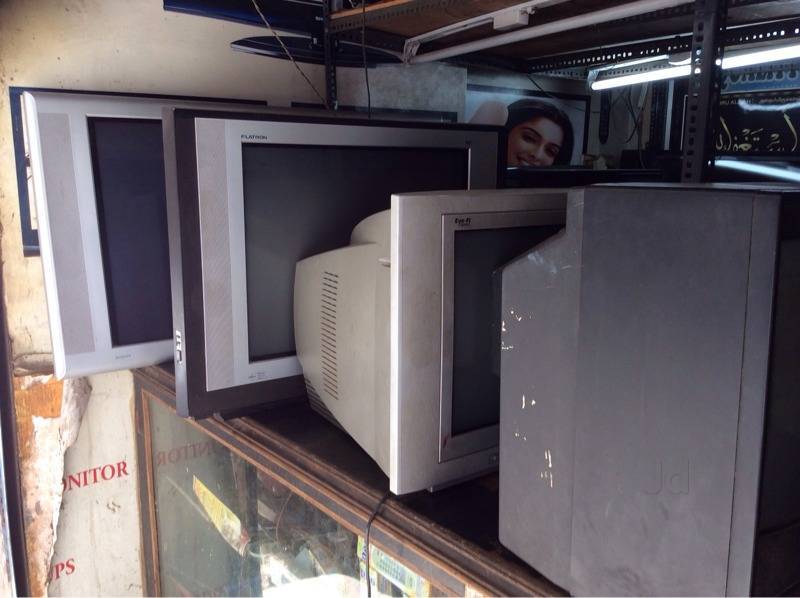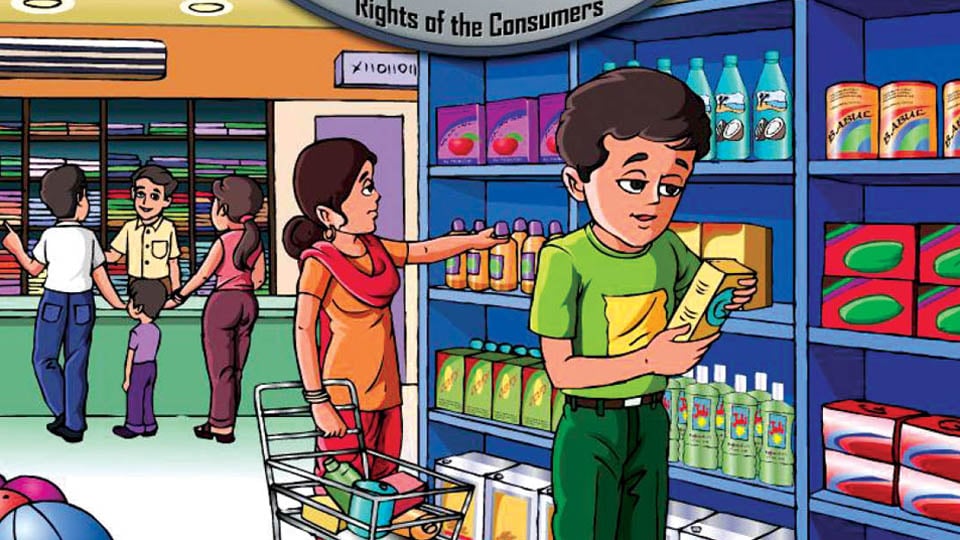The system of norms created to protect the rights of consumers and regulate their relations with manufacturers and suppliers of goods and services is represented by a number of acts. There are special regulations governing the relevant rules.
Who is affected by consumer law
Consumers are citizens who purchase a product or service for their own, personal consumption. Transactions in this case are not related to the commercial activity of the buyer.

The second side of the relationship is manufacturers, sellers and performers engaged in commercial activities on an ongoing basis. Thanks to this approach, consumer law affects almost everyone. It is interesting that lawyers forget this, turning to the courts with lawsuits regarding the quality of services and goods, focusing on individual norms of narrow action (for example, in the field of housing and communal services).
Regulatory system
Constitution It is mentioned as a basic document defining the rights and obligations of citizens: the right to life, health, etc. For the purpose of their implementation, individual laws and other regulations are adopted.
Civil Code. On its basis all property and non-property relations are built. Next in the hierarchy of acts is the Law on Consumer Protection.

Then, industry laws (on electric power, education, housing code, etc.) go on the importance of regulating the areas where relations arise between the consumer and the seller or service provider.
The ЗОПП separately stipulates that the only executive body authorized to issue normative acts for its implementation is the government of the Russian Federation. It does not have the right to delegate the adoption of regulatory acts to other bodies.
Profile law
The Consumer Rights Protection Act is fundamental in this area. Consider its content. It defines:
- The system of legislative regulation of the sphere.
- Consumer Rights.
- Rights and obligations of manufacturers, sellers (the right to inform the consumer about services or goods and the manufacturer and seller is especially highlighted).
- Forms of responsibility.
- Features of the handling of claims in courts.
- Features of settlements, the provision of certain types of services and the sale of certain types of goods.
- The system of state supervision.
- Fundamentals of public consumer protection.
The normative act is extensive, the articles are periodically supplemented and updated. Some norms are of a reference nature, for example, an order to the government to adopt rules on the peculiarities of the sale of certain types of goods.
Consumer rights of citizens
We mention the main features of citizens:
- The right to safety of goods and services, for its provision are the responsibility of the seller or manufacturer.
- Informing the consumer about the seller, the manufacturer (name of organization, mode of operation, list of services and goods provided), normative acts indicate specific information that must be transmitted to the consumer or contained on the packaging of the goods.
- The right to compensation for material and moral damage caused by low-quality goods or services.
- The right to replace the goods or reduce the price or accept the goods and return the money if the goods are defective.
- The right to return or exchange goods for which there are no claims regarding quality (exceptions are provided for medicines and food products).
- The right to refuse a previously concluded agreement subject to payment of expenses incurred by the contractor.
What violations do citizens face?
People face many violations of consumer rights, we list some of them:

- Evasion or refusal to inform, providing false information.
- Refusal to accept goods or exchange one good quality product for another.
- Failure to return money for poor quality products or to compensate for repair costs.
- Fabrication of lateness with the appeal for the exchange of goods of inadequate quality.
- The conclusion of agreements on terms that are contrary to law and clearly put the consumer at a disadvantage.
- The provision of expired goods.
Protective measures
The state is taking a series of measures to protect consumers. In particular, only organizations or entrepreneurs with a license or other permission from the state are entitled to provide certain services or sell a number of goods. Certification of goods and compliance with technical regulations are welcome.

Goods or services must meet all sorts of parameters that determine quality. For example, the norms for the supply of communal resources have been adopted, deviation from them is considered a serious violation and gives the right to compensation.
There are standards in the educational, medical and other fields, consumer law is quite applicable to them.
The process of selling or rendering certain goods or services, for example, complex technical goods, is regulated in sufficient detail. Strict requirements are imposed on the organization of remote maintenance.
What citizens are entitled to demand
Protection of consumer rights of citizens is carried out by the measures provided for in the law:
- exchange of low-quality goods for a quality sample;
- reimbursement of expenses to eliminate deficiencies;
- price reduction for low quality goods;
- reimbursement for the elimination of defects in the product;
- Compensation for property and moral damage caused by substandard goods or services.

This is a general list of remedies applicable to all areas of life, from the purchase of goods to housing and communal services.
At the same time, when filing a lawsuit or complaint, it is necessary to choose one option from the entire list. For example, in the field of housing and communal services, recalculation of payment for services and compensation of harm is applied.
Confusion with requirements, especially if they are opposite in meaning, makes it impossible to resolve complaints and lawsuits. Therefore, before submitting documents to state authorities or the court, the applicant should think about which result suits him best.
Note that consumer law in the Russian Federation provides a wide range of rights protection tools.
The system of state consumer protection
Rospotrebnadzor and its departments are engaged throughout the country to verify business entities for compliance with legal standards. The consideration of citizens' complaints was organized. It should be added that the body is also responsible for monitoring compliance with standards in the field of sanitation.

This body is involved in the protection of consumer rights by issuing prescriptions and holding the perpetrators accountable. The grounds are complaints from citizens and materials coming from other bodies.
The role of municipalities
In addition to the powers that are transferred to the municipal level (the regional government has this right), local administrations have the right:
- Examine complaints and advise citizens.
- Turn to the courts to protect the rights of individual citizens and their unlimited number (almost never used).
- Report any violations to authorized bodies.
The role of the prosecutor
An appeal to the prosecutor’s office, if written, is redirected to Rospotrebnadzor, since the prosecutor’s office is responsible for monitoring the quality of work of other bodies. Although the right to appeal to the courts is not excluded. Applications are submitted for the protection of specific people and for an unlimited number of citizens.So far, the prosecutor’s office is actually the only structure that has and is using the right to go to court with such claims.

Collective lawsuits of citizens are filed on behalf of specific people, and the court decision actually concerns only them. If the violation is systemic, then the only way to achieve something is to act through the prosecutor's office. After the decision made on such a claim, it is enough to refer to it, and it is no longer necessary to apply the same lawsuit to different people to the same defendant.
As part of their authority, consumer rights are protected by regional governments. They have the right to transfer powers to the municipal level.
Consumer Associations
What solutions does the law provide? Consumer cooperatives. They are created by citizens to meet their needs of tangible and intangible nature. For example, credit cooperatives. A person pays a fee upon entry and receives the right to a loan at the expense of the association.
If an organization is created to produce goods or services, a member of the cooperative has the right to purchase them at reduced prices or on other preferential terms.
All the time of membership in a cooperative, citizens have the right to apply for a part of the organization’s income if it conducts commercial activities.
